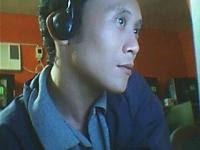In his essay titled Arguments From Nothing: God and Quantum Cosmology, Lawrence Cahoon, a professor of philosophy at the College of the Holy Cross in Worcester, Massachusetts has argued, in response to the recent complex theories of cosmology, that, indeed, the beginning of a finite-past universe, as we know it, and as new propositions in quantum physics suggest, might not as well be what most have expected – that the universe had been generated from nothing. In this paper, the author had brought forth two arguments: first of which, he had elaborated on a different concept of the usage of the word Nothing in relation to quantum cosmology; and second, that the position of these novel ideas, as far as these have metaphysical implications, are dysfunctional. The author was circumspect and careful to elaborate his argument on the basis of the current and sound hypothetical postulates and discoveries of physics considering that the beginning of the universe from Nothing has some religious influence.
Taking the thought of the Greek Parmenides as his initial point – “Why is there something rather than nothing?” – the author postulates that the word Nothing needs to be construed in a different light against the usual denotation, which is “in the sense of utter absence”. The proposition of Edward Tryon in 1973 of the “continuous emergence and disappearance of particles” in quantum vacuum and succeeding inflation theory and quantum tunneling has given the author a substantive ground to propose a different kind of conception of the uncaused cause, which was propounded by St. Thomas of Aquino in Christian Theology. It has been discovered that most of the content in the universe is energy (dark energy) and that space cannot be translated as nothing since it has “its own metric structure that causally interacts with mass-energy”. Therefore, the concept of Nothing is not the state of “no-thing” but in the varying degrees of determinateness.
Given the thrust of current cosmological theories and its direction to open discussions on the initial condition from which the universe came, the author, mindful of the methodological constraints intrinsic in science and its predilection “to build structure into the laws so as to leave nothing to initial conditions”, rightly said the following: “without reference to an outside, that (emergence of particles) is impossible”. Thus, for the author, considering that the “current physics claims that the ensemble of matter, physical energy, force fields, waves, particles, and spacetime, characterized by physical constants and governed by laws, started” and rightly and proper to Leibniz’s Principle of Sufficient Reason, to posit a reference on the initial condition, which current scientific consensus may consider as outside the purely physical and material grounds, is legitimate, valid, and rational.
As a point of departure from the theistic doctrine of ex nihilo but leaning more closely to the philosophical idea of Baruch Spinoza and panentheism, the philosopher-author speculated on what he termed as the Ground, the source of the physicality of the universe and whose attribute is also physicality itself. In this, he has imagined that the Ground is like a predifferentiated Being, but not entirely indeterminate or without properties as to become nothing in equivalence. It becomes the source of laws and funds, initiates, and fixes the rules and constants that hold the universe together. Against the commonly-held attributes of God in Christian Theology and in the hopes of moving away from the inherent difficulties that the classical explication of God raises in relation to natural science, the author had concurred with another author’s (Hartshorne) denial of the Ground’s omniscience and omnipotence, and its limitation in power and knowledge.
From the outset, the author has been clear of his position regarding the properties, characteristics, and attributes of what he has postulated as the Ground of Being as that which is the source of the physical world, as against the cosmological argument hinging on theistic concepts generated from religious beliefs and divine revelation. The author is faithful to his intent in preserving a cosmological argument vis-a-vis Hume’s on the grounds of the purely scientific territory, building it up on the foundations of current advancement in theoretical physics, and freeing the limitations inherently imposed on his concept of the Ground and in consideration of a highly stochastic background of reality. The question, then, is asked on just how much does this opening of a self-enclosed metaphysical horizon of the world of science is to the question of Being given that the line of thought and the trajectory of physics, and contiguously in all sciences, is directed to some higher questions, which may overlap with the categories based on religion. The author has willfully consigned to limiting himself to the verifiable and the quantitative nature of reality and recedes from looking rational answers over the terrains of faith and revelation. Does this limit our goals of inquiry, then? After all, the author has said the following: “here looms a potentially unending debate about the aims of inquiry. My only short-term defense is that the censorship of that extra step can make no obvious claim to rational superiority”.


